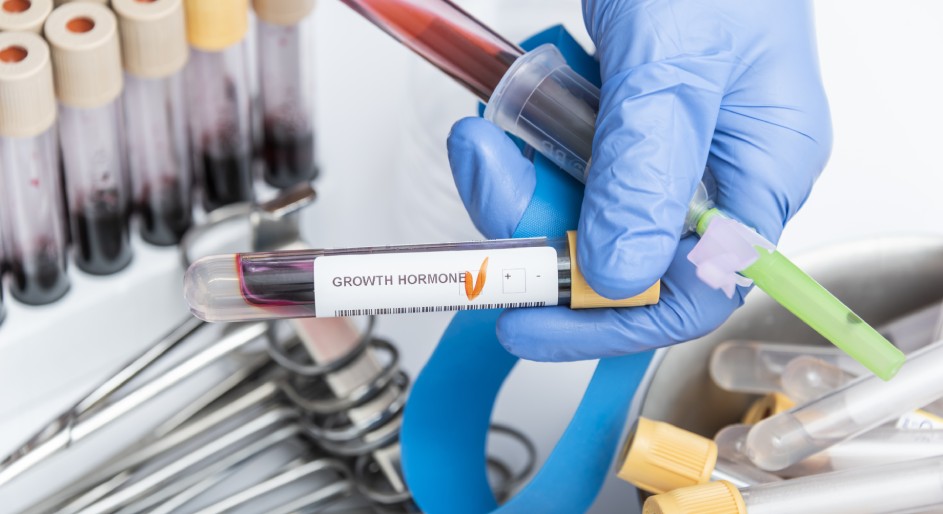GENEMEDICS APP
GENEMEDICS NUTRITION
What Is IGF-1?
IGF-1 is the end product of human growth hormone (HGH) synthesis and conversion. In a healthy young woman, the pituitary gland releases regular surges of human growth hormone throughout the day. Depending on her age, HGH is crucial to a host of functions, including bone and muscle growth. Typically, levels of HGH rise and fall rapidly, depending on when the last release of HGH occurred.
Aside from its physiological effects, Human growth hormone (HGH) is also converted in the liver to IGF-1. IGF-1 is a hormone that is very similar to the molecular structure of insulin. IGF-1 plays a major role in cellular division, growth of muscles, organs and bones, nerve regeneration, fat reduction, blood sugar metabolism and it helps increase the number and size of cells in the body.
Benefits of IGF-1 for Women
Researchers are increasingly excited about a somewhat obscure hormone called insulin-like growth factor-1 (IGF-1) for women. In recent years, thousands of studies have been published on the benefits of bioidentical hormone replacement therapy for women (BHRT for Women), but it seems the research community is only now catching up to the profound benefits of maintaining healthy IGF-1 levels.

IGF-1 Deficiency in Women
IGF-1 deficiency occurs when your body is not producing sufficient amounts of IGF-1 or it is not utilized well by the body due to pituitary tumors, medications, radiation, surgery, and other medical conditions. The symptoms are usually subtle. IGF-1 deficiency is linked to depression and low mood, lack of sexual desire, and a host of unwanted symptoms that are easily mistaken for other conditions, including thyroid disorders, psychiatric problems, or as side effects of medications. To further complicate matters, IGF-1 deficiency in women can sometimes be masked by the normal fluctuations that occur during a menstrual cycle.
The best way to detect and treat IGF-1 deficiency is through detailed blood work performed by a qualified physician. Depending on the results of your blood work, IGF-1 might be added to your overall hormone balancing program.
Benefits of IGF-1 (Human Growth Hormone)
Although IGF-1 and synthetic IGF-1 analogues are commonly used by athletes looking to increase muscle mass, the hormone has a host of positive benefits that extend far beyond its effect on muscles.
Diabetes and High Blood Glucose
Both of these medical conditions are more likely to occur in women, especially those who are pregnant. Prolonged high blood glucose can lead to severe complications that may affect the eyes, kidneys, or nerves. IGF-I can help lower high blood glucose by binding to insulin receptors to stimulate glucose transport in fat and muscle. In this way, the body can use glucose as a source of energy, thus maintaining normal levels of glucose in the bloodstream.
Hypertension
Hypertension is more prevalent in women than men. In vitro and in vivo experiments show that IGF-1 is a powerful vasodilator, meaning that it helps relax and widen blood vessels. It also attenuates the contractile action of the powerful vasoconstrictor known as endothelin-1 by altering the signaling activity of its receptors in smooth muscle cells. If blood vessels remain dilated, blood can flow freely through them, resulting in lower blood pressure.
Stroke
Stroke is a common disease in the older population and one of the most debilitating conditions affecting the elderly. The lifetime risk of stroke is higher in women than in men. Patients who suffer from acute stroke typically have depressed levels of serum IGF-1. Many studies have shown that IGF-1 administration in post-stroke patients reduces the loss of neurons and infarct volume (extent of brain injury) while increasing the reproduction of glial cells (a special type of cell that supplies essential nutrients and protects the neurons). Moreover, IGF-1 is beneficial in repairing brain damage by controlling the regeneration of injured peripheral nerves.
Cardiovascular Diseases
Cardiovascular diseases affect more women than men. Research has shown that women who suffer from heart attacks have lower IGF-1 levels. Further, the greater the IGF-1 deficiency, the more serious the heart attack. IGF-1 administration can help prevent and treat cardiovascular diseases by inducing vasodilation, thereby contributing to the regulation of vascular tone and arterial blood pressure, as well as the preservation of normal blood flow to the heart.
Alzheimer’s disease (AD)
More women get Alzheimer’s disease (AD) than men, in part because women tend to live longer. The brains of people with AD have an abundance of abnormal structures called amyloid plaques (sticky buildup that accumulates outside nerve cells). Recent research shows that brain amyloid clearance is modulated by serum IGF-I. Also, IGF-1 protects the nerve cells in the brain from degeneration.
IGF-1/HGH Replacement Therapy for Low Growth Hormone Levels
HGH replacement therapy should be considered in women with a deficiency in either growth hormone or IGF-1. Clinical experience has shown that women with healthy HGH and IGF-1 levels include:
|
|
Genemedics Health Institute offers state-of-the-art patient assessment and lab testing to determine the status of all your hormone levels. Our expert bioidentical hormone replacement therapy doctor will conduct an accurate medical evaluation to determine the cause of HGH or IGF-1 deficiency and to develop a care plan that is tailored to each patient’s needs.
Success Stories
 before after
before after
At the age of 60, I look and feel better than I ever have in my entire life! Switching my health program and hormone replacement therapy regimen over to Genemedics was one of the best decisions I’ve ever made in my life! Genemedics and Dr George have significantly improved my quality of life and also dramatically improved my overall health. I hav...
Nick Cassavetes ,60 yrs old
Movie Director (“The Notebook”, “John Q”, “Alpha Dog”), Actor and Writer
Call 800-277-4041 for a Free Consultation
- Usually takes 15-30 minutes
- Completely confidential
- No obligation to purchase anything
- We will discuss your symptoms along with your health and fitness goals
- Free post-consult access for any additional questions you may have


